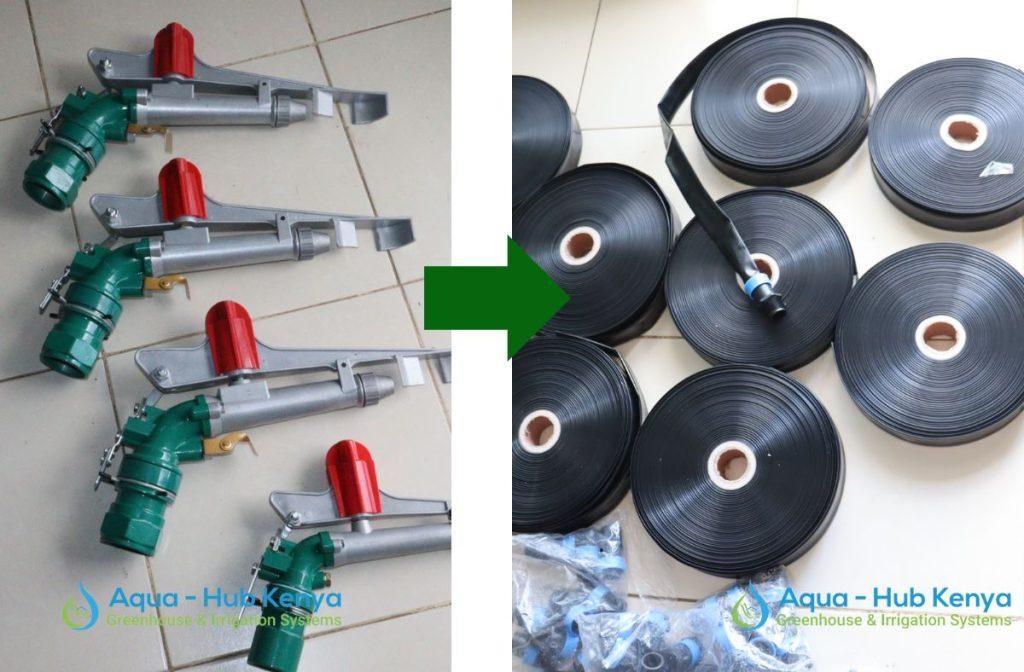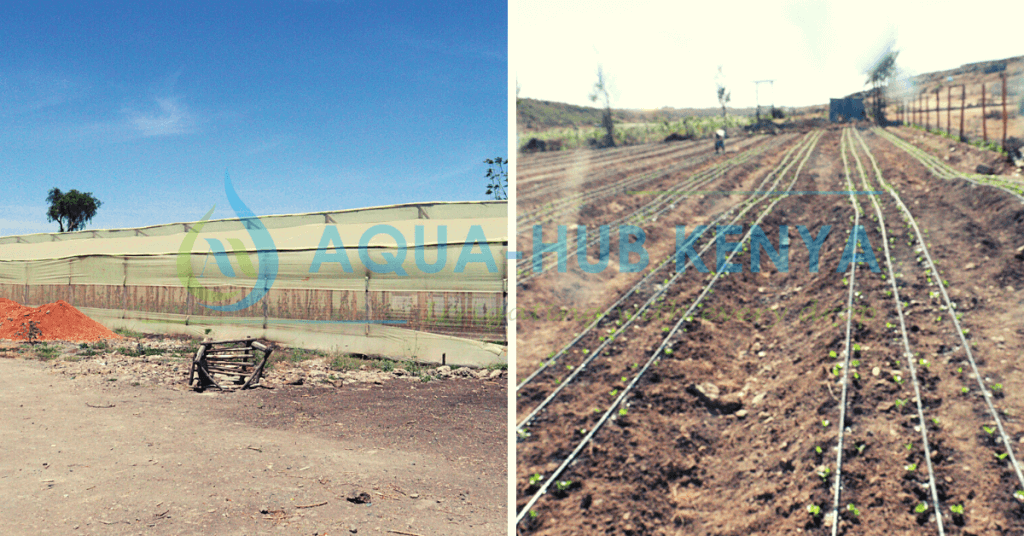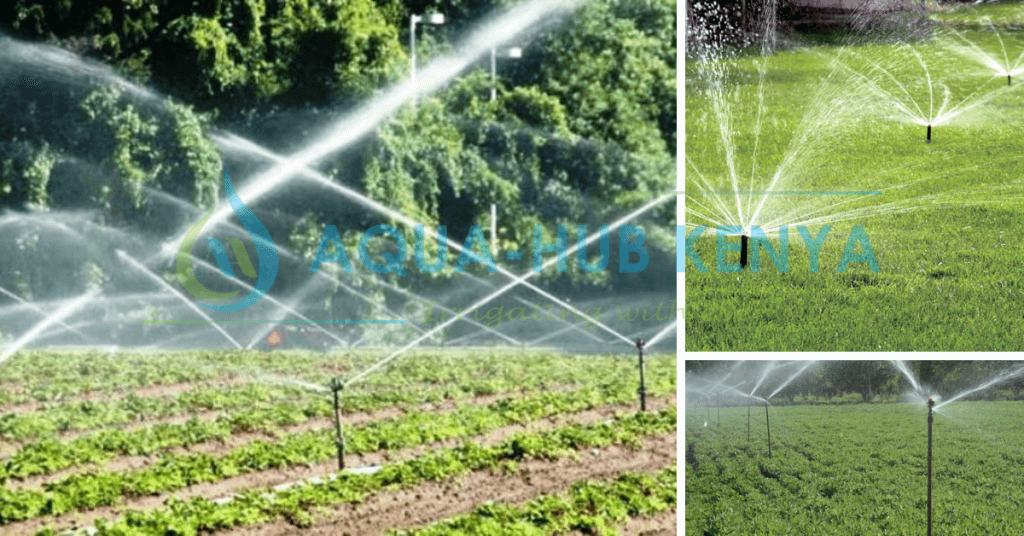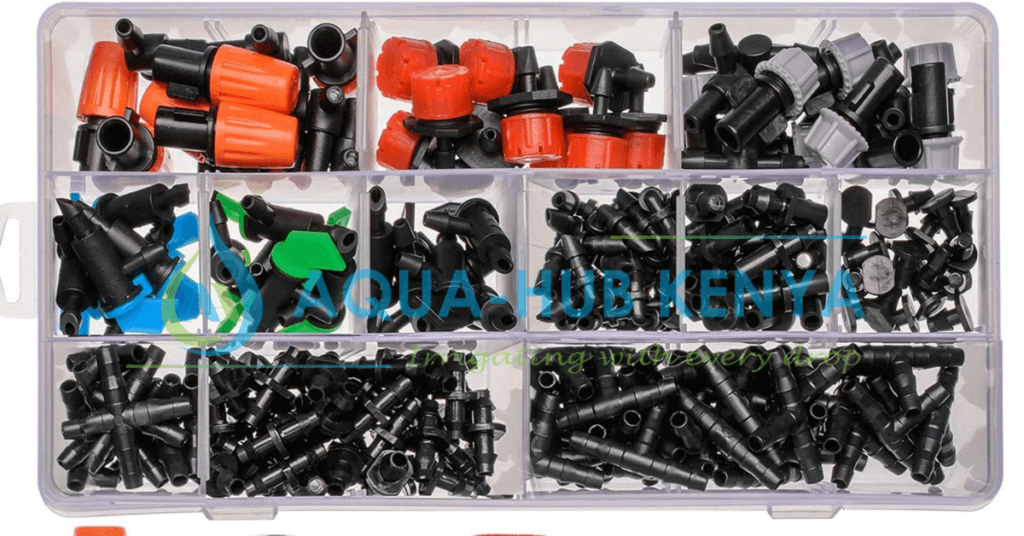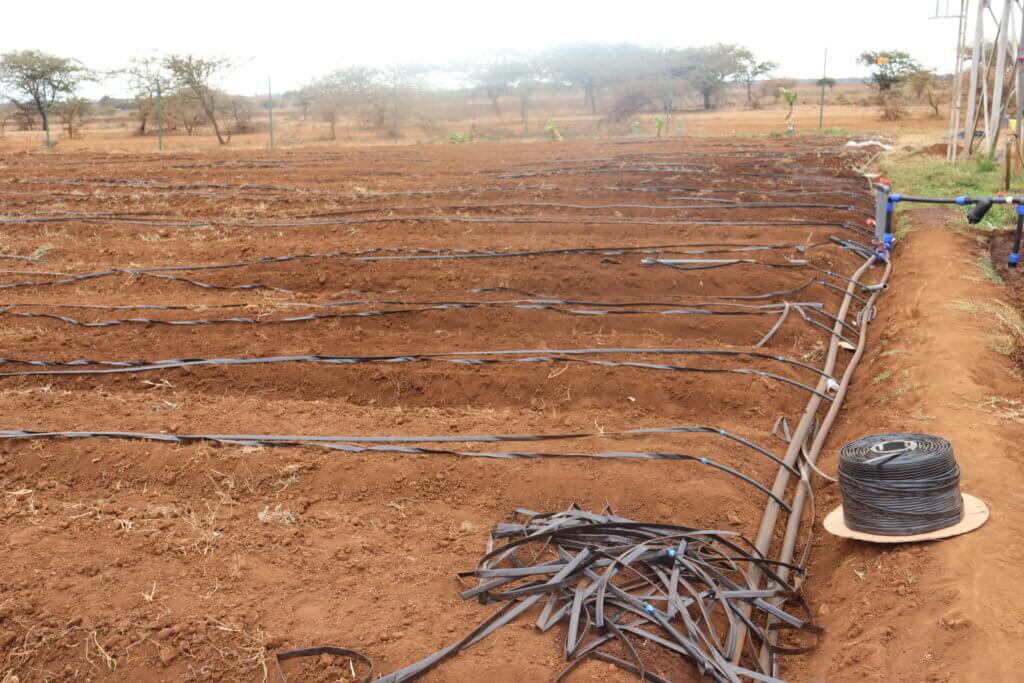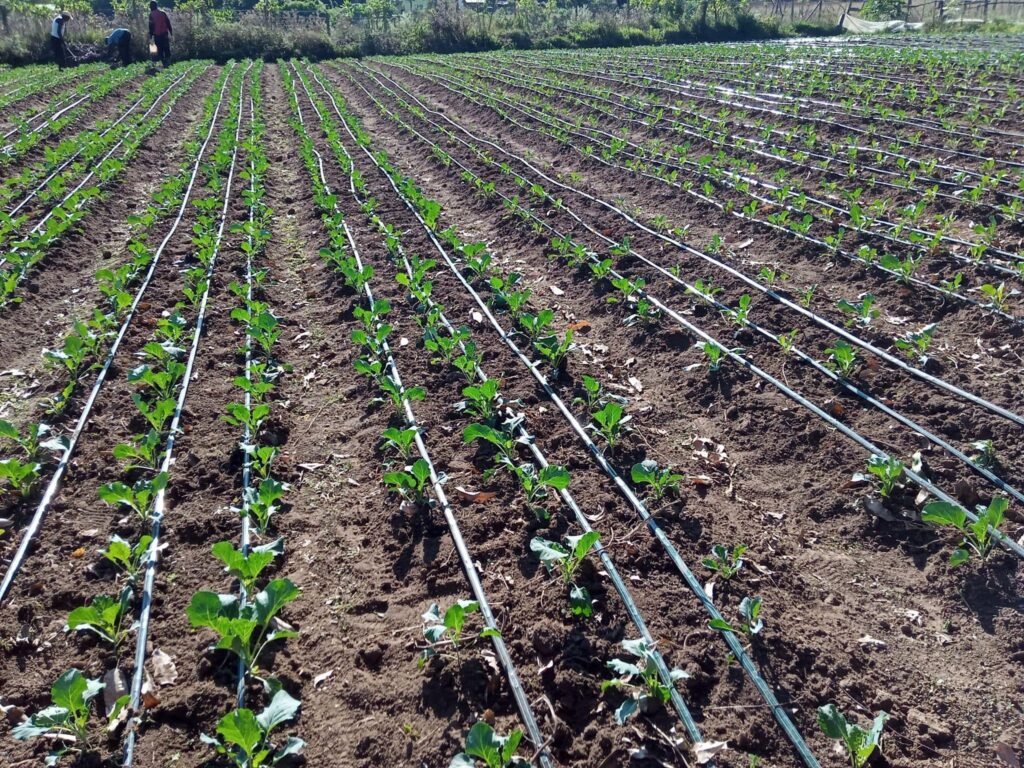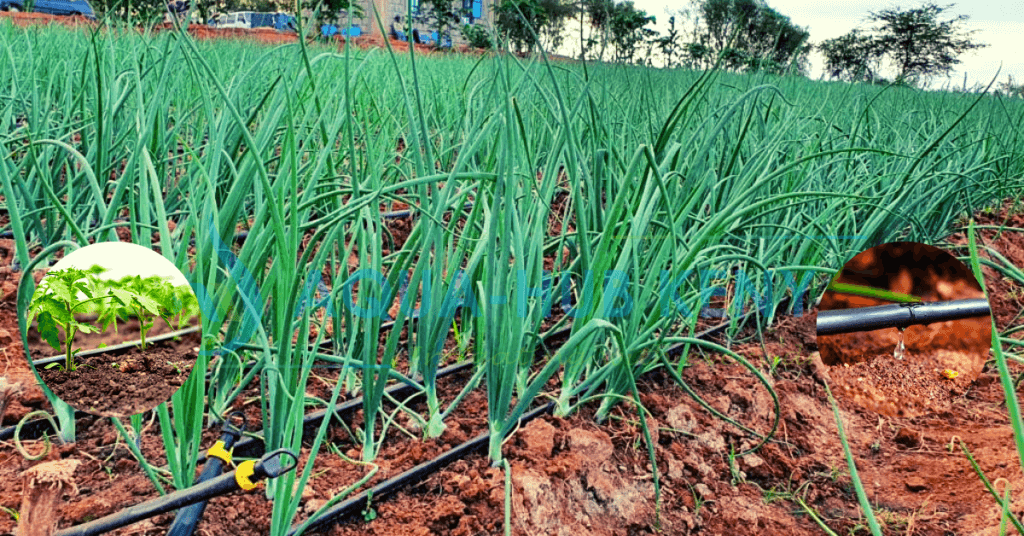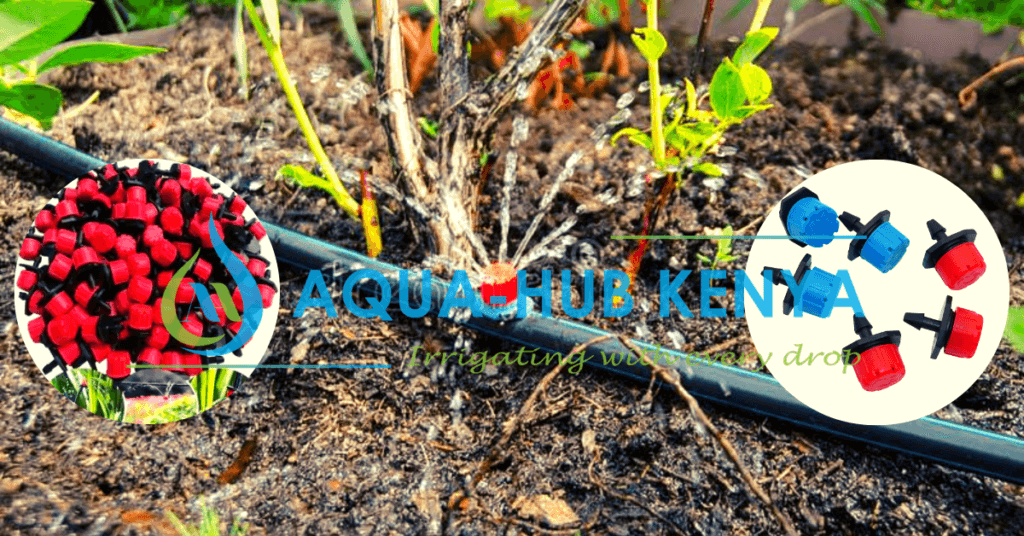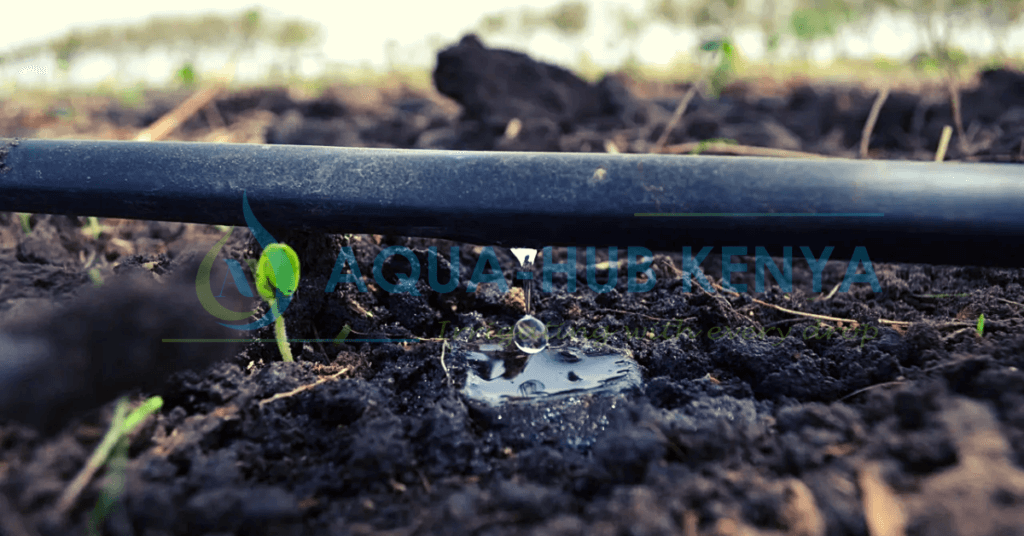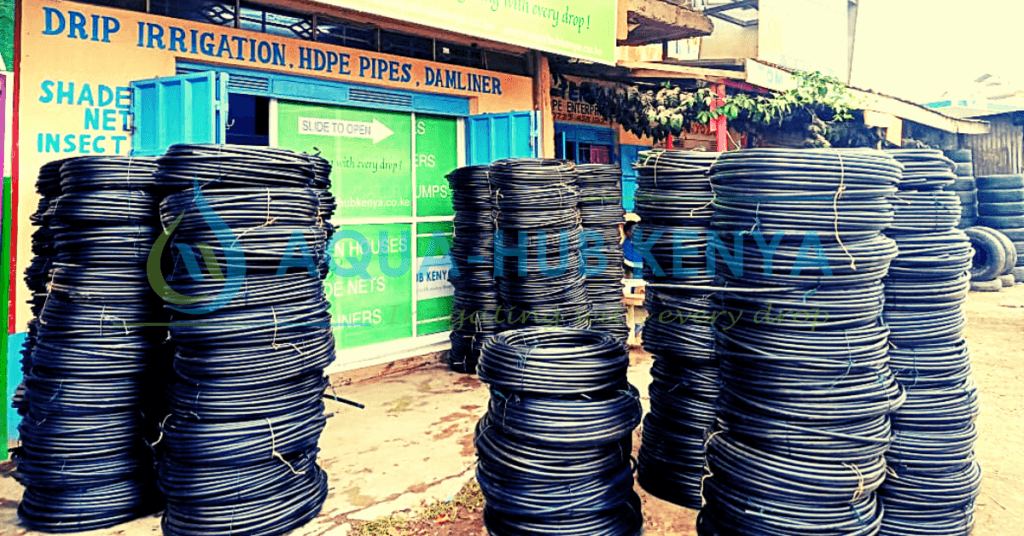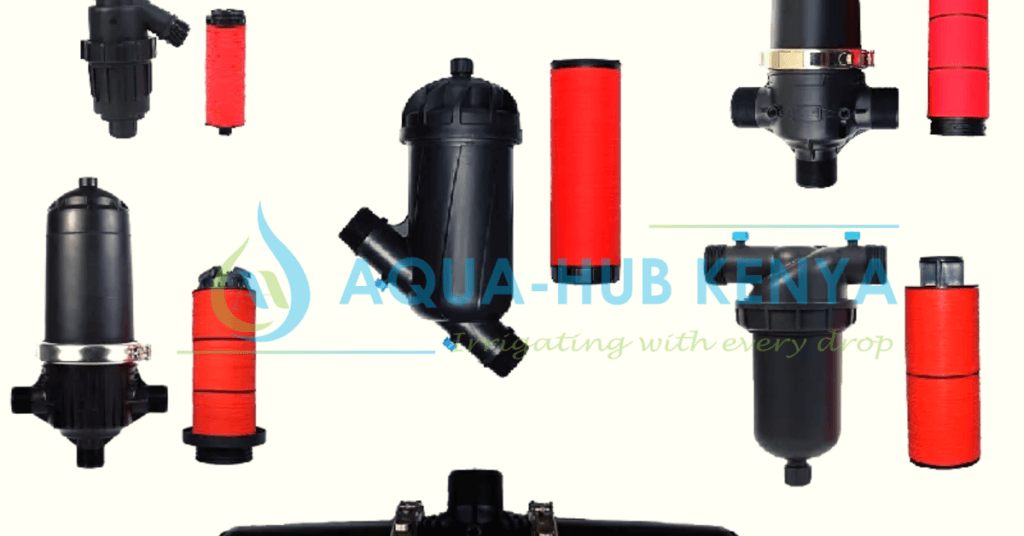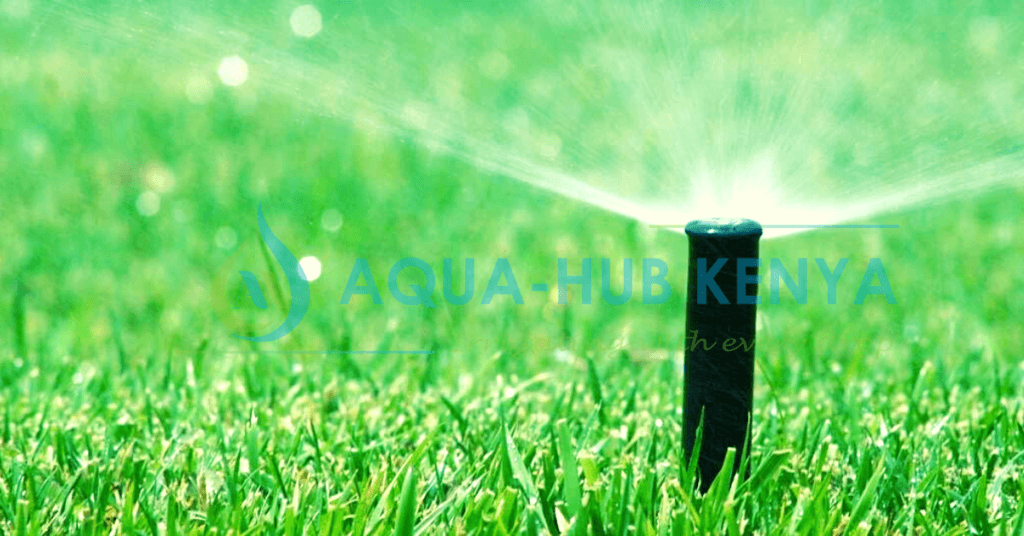Irrigation Systems in Kenya
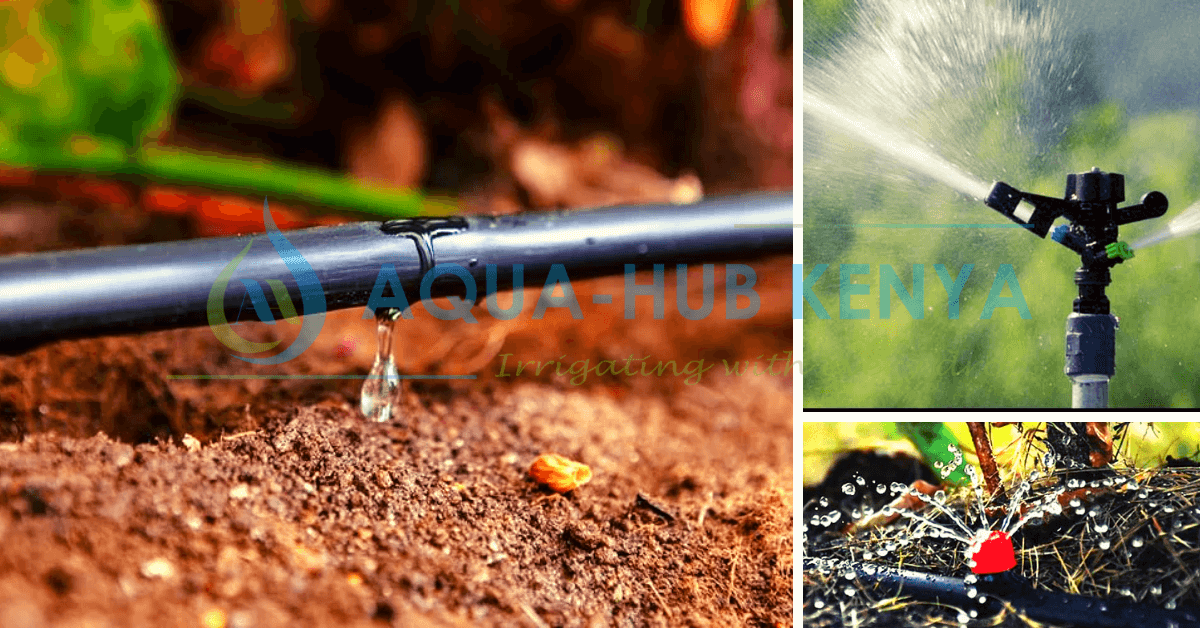
Adoption of Irrigation Systems in Kenya is currently on rise. This is due to unpredictable weather conditions in the country. Several farmers have realized that they cannot rely on the rains as the main source of water for their crops. Additionally, as farmers in Kenya have become more aware of the benefits of irrigation. The benefits include increased crop yields and improved food security, they have been more inclined to invest in irrigation systems. Aqua Hub is here to help farmers who are looking for the best irrigation systems for the farms. We have a wide range of irrigation systems in Kenya depending on your needs. We help you in selecting the best irrigation system depending on what you are growing.
What are irrigation systems in Kenya?
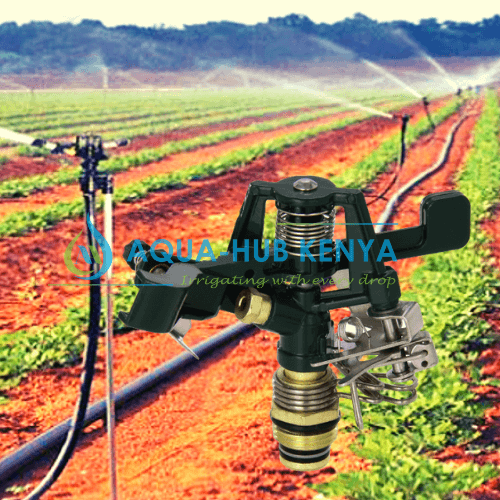
Irrigation is the process of artificially supplying water to land or crops to help them grow. It is used to supplement natural water sources such as rainfall. Irrigation systems also ensure that crops receive enough water to grow. It is accomplished using various systems of tubes, pumps, and sprays. Irrigation is typically employed in locations where rainfall is inconsistent, dry periods are forecast, or drought is predicted. There are several types of irrigation systems that supply water consistently to the entire field.
Irrigation can be used to grow a wide range of crops, including cereals, fruits, and vegetables. It can also increase crop yields and improve food security in regions where water is scarce or unreliable. There are different types of irrigation systems that can be used, including flood irrigation, sprinkler irrigation, drip irrigation, micro irrigation and rainwater harvesting. Each method has its own advantages and disadvantages and is more suitable for certain types of crops and regions.
What are the types of irrigation systems in Kenya?
Irrigation systems are methods and equipment used to artificially supply water to crops. There are different types of irrigation systems that can be used, including:
- Drip Irrigation: This method involves delivering water directly to the roots of the crops using a network of pipes, valves, and emitters. It is considered one of the most efficient irrigation methods as it reduces water loss due to evaporation and runoff, and allows for precise water application.
- Sprinkler Irrigation: This method involves using a system of pipes and sprinklers to distribute water to the crops. It’s a modern version of flood irrigation and can be used in hilly or mountainous regions.
- Center pivot irrigation: This method uses a central pivot point on a farm, to water the field in circular fashion. It is a modern version of lateral move irrigation.
- Subsurface drip irrigation (SDI): This method involves placing the drip emitters below the surface of the soil, providing water directly to the root zone of the plants.
- Micro irrigation: This method is similar to drip irrigation but involves the use of smaller emitters and is used in small scale farming.
- Rain hose irrigation: Rain hose irrigation, also known as “leaky hose” or “soaker hose” irrigation, is a type of micro-irrigation method that uses a long, perforated hose to deliver water directly to the root zone of plants. The hose is typically made of rubber or plastic and has small holes or slots along its length that allow water to seep out and soak into the soil.
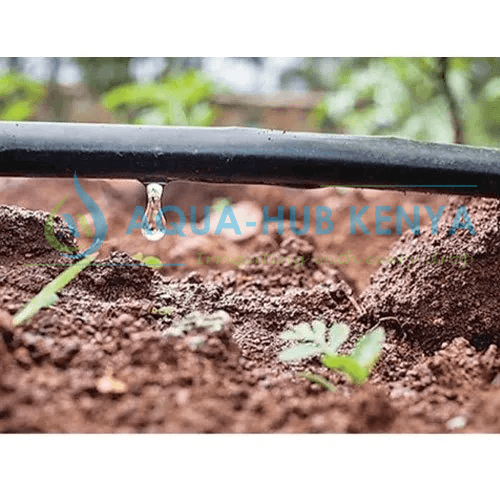
What are the factors to consider when selecting irrigation systems?
When selecting an irrigation method or system, some factors to consider include:
- Type of crop: Different crops have different water requirements, so the irrigation method or system should be chosen accordingly.
- Climate: The climate of the area will also affect the irrigation method or system selection, as methods or systems designed for arid regions may not be suitable for areas with high rainfall.
- Soil type: The type of soil will also affect the irrigation method or system selection, as methods or systems designed for sandy soils may not be suitable for clay soils.
- Size of the area to be irrigated: The size of the area to be irrigated will also affect the irrigation method or system selection, as methods or systems designed for small areas may not be suitable for large areas.
- Water source: The availability and quality of water will also affect the irrigation method or system selection.
- Labor availability: The availability of labor to operate and maintain the irrigation system should be considered.
- Energy availability: The availability of energy to operate the irrigation system should be considered.
- Budget: The cost of the irrigation system and its maintenance should also be considered.
- Government regulations and policies: The local government regulations and policies regarding the irrigation systems should be considered before selecting the irrigation method or system.
It may be helpful to consult with Aqua Hub for specific recommendations for your situation.
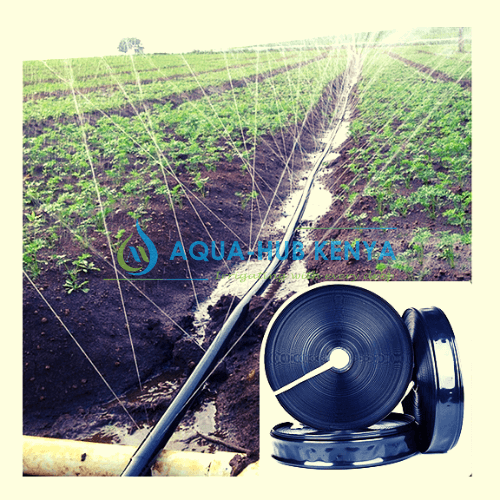
Why is irrigation important in Kenya?
- Kenya is primarily an agricultural country, with the majority of its population depending on farming for their livelihoods. Irrigation can help to increase crop yields and improve food security in the country.
- Kenya’s climate is characterized by uneven rainfall patterns, with prolonged dry seasons and droughts that can lead to crop failures. Irrigation can help to mitigate these effects by providing a reliable water source for crops during dry periods.
- Irrigation can also help to improve the quality and variety of crops grown in Kenya. By providing a reliable water source, irrigation can enable farmers to grow high-value crops such as fruits and vegetables, which can improve their income and livelihoods.
- Irrigation can also help to improve water management in Kenya, by reducing water losses and increasing water use efficiency.
- Kenya has a government policy that is actively working towards increasing irrigation coverage across the country, hence irrigation is important as it aligns with the government’s policy and plans.
These irrigation systems are widely adopted by farmers in Kenya to improve crop yields and food security. Each method is suitable for certain types of crops and regions, and farmers often use a combination of methods to suit their specific needs. Aqua Hub Kenya provides all these types of irrigation systems. We also advise you on the best type of irrigation that is suitable depending on your requirements as a farmer. Contact Aqua Hub Kenya for all of your irrigation requirements. We are Kenya’s foremost irrigation firm and irrigation professionals. Please contact us at ELDORET: Get Quote or NAIROBI: 0790719020 for further details.

